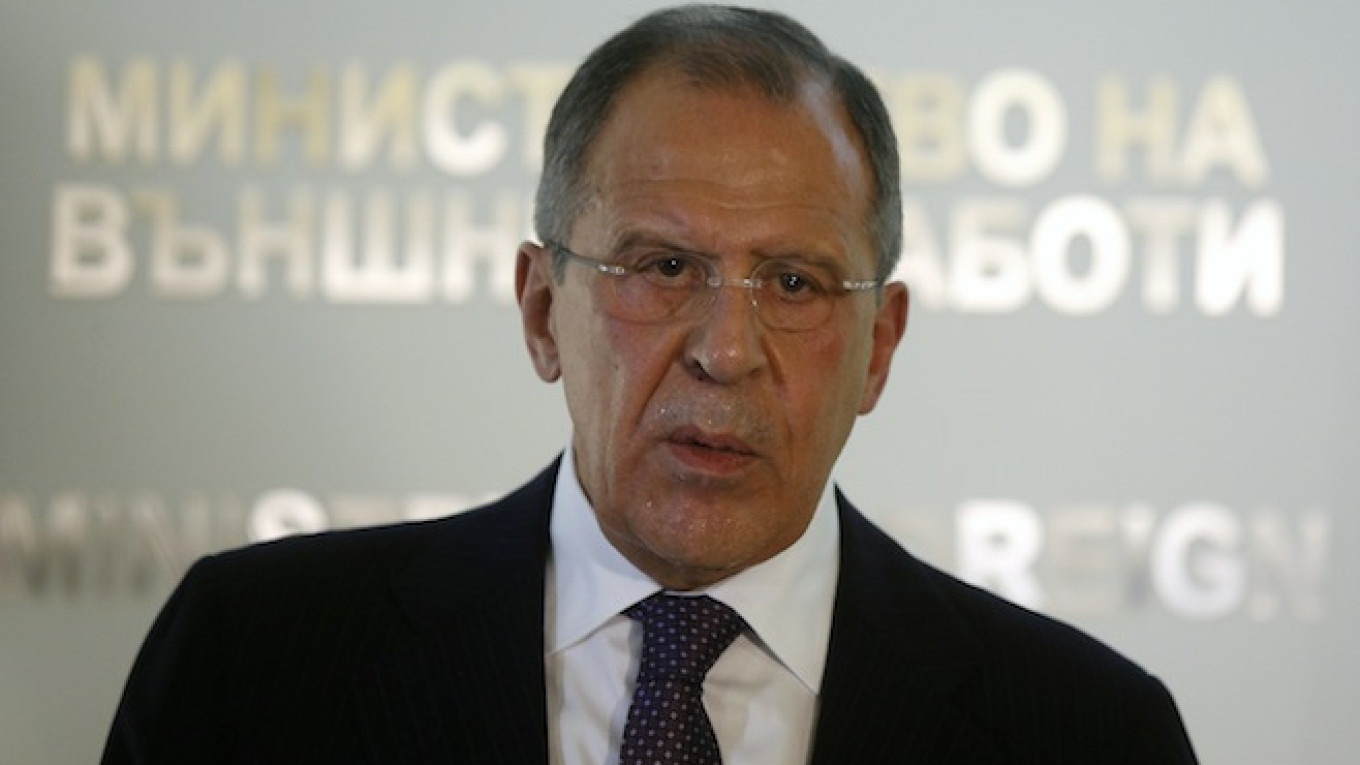Russia criticized new sanctions as "destructive and short-sighted" on Wednesday, saying they would aggravate Moscow's ties with the West already at their lowest point since the end of the Cold War over the Ukraine crisis.
Russia warned that sanctions, the most robust yet against Russia's state-owned banks and energy firms, could lead to higher energy prices in Europe and hit Moscow's cooperation with Washington on global issues where it wields considerable clout.
"Such decisions by Washington can do nothing but further aggravate U.S.-Russian relations and create an utterly unfavorable environment in international affairs, where cooperation between our states often plays a decisive role," Russia's Foreign Ministry said in a statement.
"The de-facto losses from this destructive and short-sighted policy will be quite tangible for Washington," the statement said.
The sanctions, announced in coordination between Washington and Brussels, mark a new phase in the confrontation between Russia and the West, which was deepened by the downing of Malaysia Airlines Flight MH17 earlier this month, which killed all 298 people on board.
U.S. President Barack Obama said the sanctions would have a "greater impact on the Russian economy than we've seen so far."
The targets of new U.S. sanctions include VTB, Bank of Moscow and Russian Agriculture Bank, or Rosselkhozbank, the U.S. Treasury said. The measures prohibit U.S. citizens or companies from dealing with debt carrying maturities longer than 90 days, or new equity.
Five of the six largest Russian state-owned banks are now under U.S. sanctions.
Russian Foreign Minister Sergei Lavrov said Russia, which holds a veto-wielding permanent seat on the U.N. Security Council, would take the sanctions into account in its future ties with Washington but would not take tit-for-tat measures.
"We feel no joy, but we do not intend to act as though nothing is happening. We will make our conclusions, but we will not try to answer offense with offense," he said speaking at a news conference in Tajikistan.
While Moscow and Washington have been at loggerheads on international issues, the White House has benefited from Moscow's influence, particularly in Syria where Russia persuaded Damascus to give up its chemical weapons.
Higher Gas Prices
Europe, which counts on Russia for a quarter of its natural gas supplies, was hesitant to boost sanctions until the MH17 disaster, which the West says was almost certainly caused by Moscow-backed rebels with a Russian-supplied surface-to-air missile.
On Tuesday, European diplomats said ambassadors from the 28-member European bloc agreed to restrictions on trade of equipment for the oil and defense sectors, and "dual use" technology with both defense and civilian purposes.
Russia's state run banks would be barred from raising funds in European capital markets.
"By going on a sanctions spree, Brussels, by its own will, is creating barriers for further cooperation with Russia in such a key sphere as energy," Russia's Foreign Ministry said in a statement.
"It will inevitably lead to an increase in prices on the European market," the statement said.
The sanctions reflect the West's anger over what it calls Moscow's instigation of the Ukraine conflict including Russia's annexation of Ukraine's Crimea territory and the fanning of violence in the east with fighters and weapons.
But Russia said U.S. sanctions were Washington's attempt at deflecting responsibility for its role in Ukraine where former Moscow-backed president Viktor Yanukovych was ousted and replaced with a pro-Western government.
"It is not Russia, but the Kiev regime and its overseas patrons that are guilty for the growing number of civilian casualties in the eastern regions," the foreign ministry statement said, referring to reports of civilian casualties in the violence.
U.S. sanctions also targeted United Shipbuilding Corp, a shipbuilding company based in St. Petersburg, in a move that freezes any assets it may hold in the United States and prohibits all U.S. transactions with it.
The Commerce Department classified United Shipbuilding Corp as a defense technology company.
The new sanctions block the exports of specific goods and technologies to the Russian energy sector. The Commerce Department said it will deny any export, re-export or foreign transfer of items for use in Russia's energy sector that may be used for exploration or production of deepwater, Arctic offshore or shale projects that have the potential to produce oil.
Obama also formally suspended credit that encourages exports to Russia and financing for economic development projects in Russia. He warned there would be additional costs to Russia should Moscow not back down.
See also:
U.S. Expands Sanctions Against Russia, Rebuffs Talk of New Cold War


